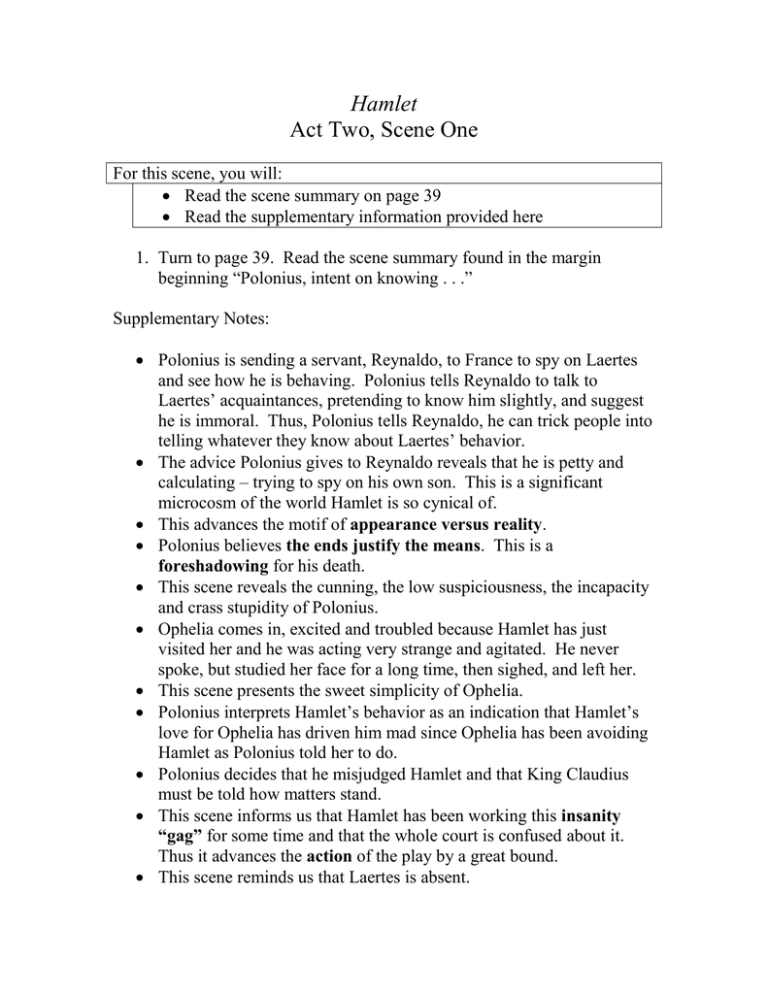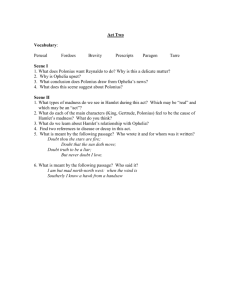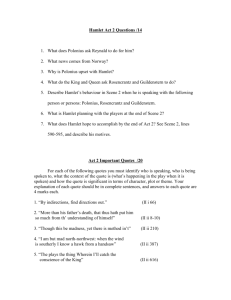Hamlet
advertisement

Hamlet Act Two, Scene One For this scene, you will: Read the scene summary on page 39 Read the supplementary information provided here 1. Turn to page 39. Read the scene summary found in the margin beginning “Polonius, intent on knowing . . .” Supplementary Notes: Polonius is sending a servant, Reynaldo, to France to spy on Laertes and see how he is behaving. Polonius tells Reynaldo to talk to Laertes’ acquaintances, pretending to know him slightly, and suggest he is immoral. Thus, Polonius tells Reynaldo, he can trick people into telling whatever they know about Laertes’ behavior. The advice Polonius gives to Reynaldo reveals that he is petty and calculating – trying to spy on his own son. This is a significant microcosm of the world Hamlet is so cynical of. This advances the motif of appearance versus reality. Polonius believes the ends justify the means. This is a foreshadowing for his death. This scene reveals the cunning, the low suspiciousness, the incapacity and crass stupidity of Polonius. Ophelia comes in, excited and troubled because Hamlet has just visited her and he was acting very strange and agitated. He never spoke, but studied her face for a long time, then sighed, and left her. This scene presents the sweet simplicity of Ophelia. Polonius interprets Hamlet’s behavior as an indication that Hamlet’s love for Ophelia has driven him mad since Ophelia has been avoiding Hamlet as Polonius told her to do. Polonius decides that he misjudged Hamlet and that King Claudius must be told how matters stand. This scene informs us that Hamlet has been working this insanity “gag” for some time and that the whole court is confused about it. Thus it advances the action of the play by a great bound. This scene reminds us that Laertes is absent. After reading the scene: Ophelia describes in detail Hamlet’s appearance and actions. The details in this description would convince an Elizabethan audience that Hamlet is mad. Reword Ophelia’s description in such a way as to convince a modern audience that Hamlet is mad. (journal)






